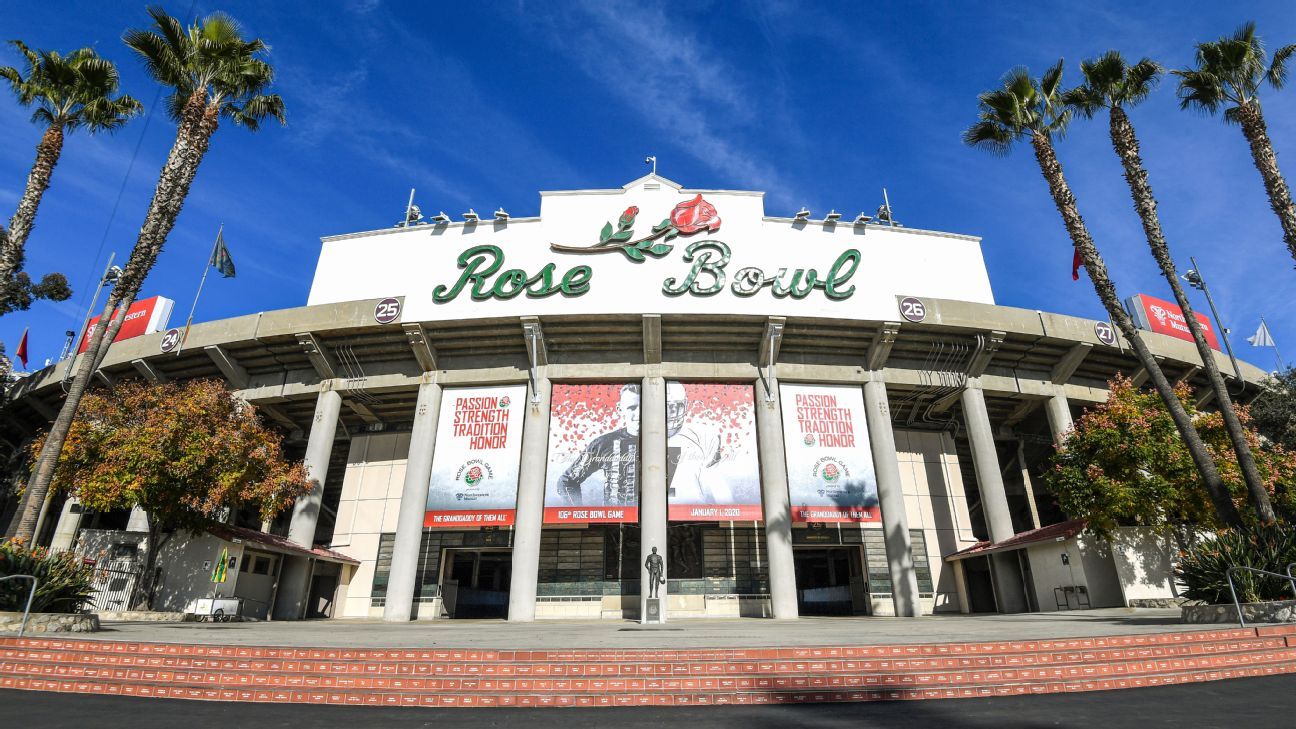
The College Football Playoff semifinal scheduled to take place at the Rose Bowl Stadium in Pasadena, California, has been moved to AT&T Stadium in Arlington, Texas, the Rose Bowl announced Saturday. The game will take place on Jan. 1 and be broadcast by ESPN.
According to the release, the decision to move the game was based on the growing number of COVID-19 cases in Southern California, along with the inability for players' and coaches' families to attend because of state restrictions during the pandemic. Since March, all sporting events in California have been unable to host fans and participants' families. The Pasadena Tournament of Roses made its first appeal for a special exemption at the Rose Bowl Game in November and followed up with a second request to the state this month. Both requests were denied.
According to reports on Saturday, the Tournament of Roses had asked state health officials to allow 400 to 500 spectators in the 95,000-seat stadium.
"We know that the decision was not an easy one to make," said David Eads, CEO and executive director of the Tournament of Roses, in a statement. "While we remain confident that a game could have been played at the Rose Bowl Stadium, as evident in the other collegiate and professional games taking place in the region, the projection of COVID-19 cases in the region has continued on an upward trend."
The Tournament of Roses also stated that "with significant strain on medical resources throughout Los Angeles County ... the well-being of the student-athlete needs to come first and that continues to be our top priority."
It hasn't been determined if the CFP semifinal in Dallas will be called the CFP Semifinal at the Rose Bowl Game presented by Capital One. The name is part of the Master License Agreement and is co-owned by the Pasadena Tournament of Roses and the city of Pasadena.
"We are very grateful to Rose Bowl officials and the City of Pasadena," CFP executive director Bill Hancock said in a statement. "They have worked hard to listen to the concerns of the CFP, the teams that might have played there, and their state and government officials."















 Phone: (800) 737. 6040
Phone: (800) 737. 6040 Fax: (800) 825 5558
Fax: (800) 825 5558 Website:
Website:  Email:
Email: 






